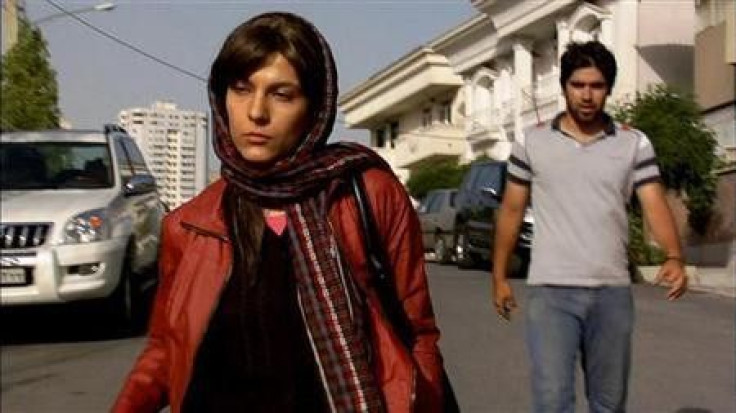Dog Sweat shows secret life of rebellious Iranians

Iranian-American filmmaker Hossein Keshavarz's directorial debut, Dog Sweat, has won recognition at world film festivals, but it will never be seen in his homeland.
That's because the tale of rebellious youth was shot underground in Iran with Keshavarz stealing scenes in public places, filming in private homes, then placing his film on a computer hard drive, putting it in a backpack and leaving the country.
There's no (Iranian) theater that would show this, said Keshavarz, a graduate of Columbia University's film program.
Dog Sweat, which opens in U.S. movie theaters on Friday, is the name of a type of liquor that can be bought on the Iranian black market in a country where alcohol is forbidden.
In the movie, it is a metaphor about a diverse group of young people looking for pleasure in a country where so much is prohibited. A gay man is forced into an arranged marriage. An unmarried couple cannot find a place to be alone. A female musician isn't allowed to pursue a career due to her gender.
Nearly 70 percent of Iran's roughly 80 million people are under the age of 35, and while Keshavarz was raised in the United States, he said he returns frequently to Iran.
You go to the movie theaters and you never see anything that reflects our lives. Something as simple as having drinks with your friends and talking, meeting up in a restaurant, meeting up in a cafe. People are really insistent on living their lives freely, he said.
The subject matter seen in Dog Sweat is forbidden in Iran. The government prefers movies that represent an idealized version of the country -- a place without gay men and women and where members of the opposite sex mix only if married.
A typical film production involves submitting a screenplay to the censorship board. They will either reject it or return it with notes. Once it's been approved, production can begin. But no movie is released without the board's final approval.
We did not go through any board, laughed Keshavarz. We shot the film underground. It really was by any means necessary.
Dog Sweat was filmed before Iran's disputed 2009 presidential elections that returned Mahmoud Ahmadinejad to power, triggering demonstrations and violence. It has won prizes at the Austin and Rome film festivals and nominations at the Los Angeles and Tokyo events.
I don't think we would be able to make this film now. Ever since Ahmadinejad came into power they've been kind of cracking down, said Keshavarz.
The environment for artists has become increasingly perilous following the 2009 elections. Influential filmmaker, Jafar Panahi has been under house arrest since March 2010, and another six producers, directors and documentary makers were arrested in September, sparking criticism from Hollywood and across Europe.
Some of the charges are very vague -- insulting Islam, indecency, said Keshavarz. They're these laws that are basically grab-all laws that they can use if they don't like what you're doing.
© Copyright Thomson Reuters 2024. All rights reserved.











